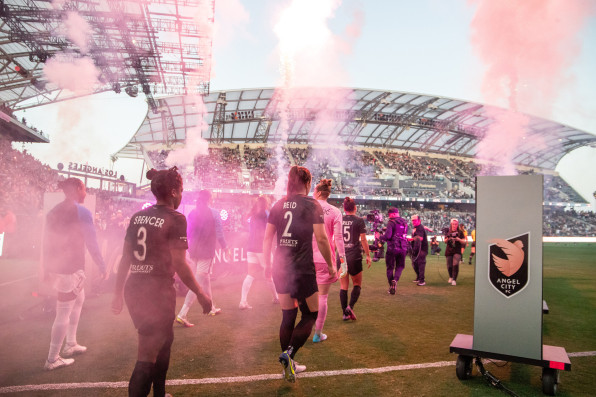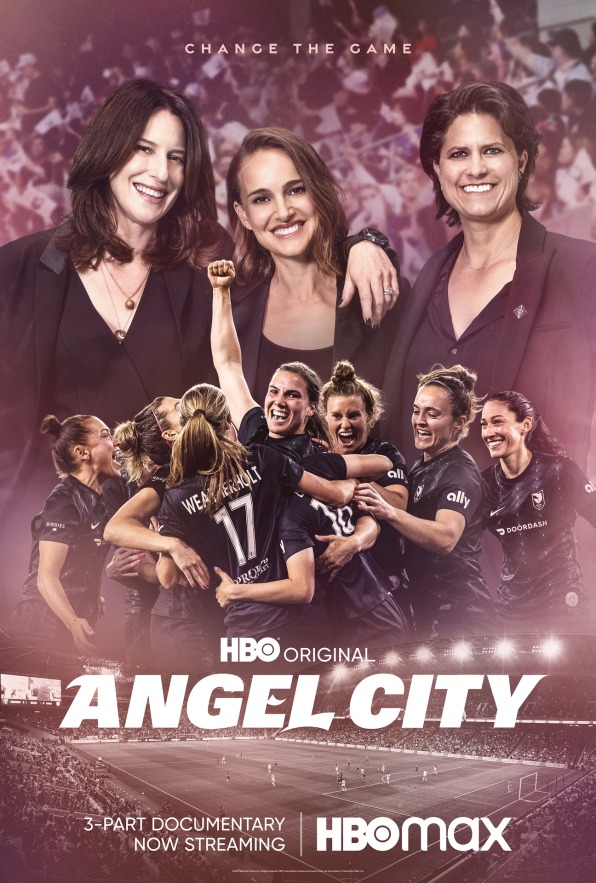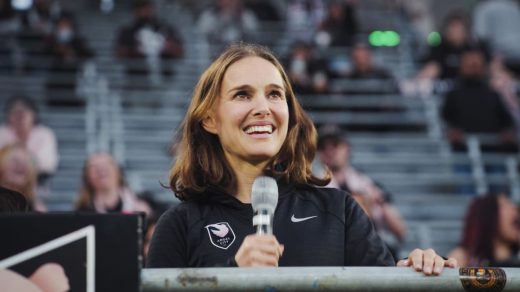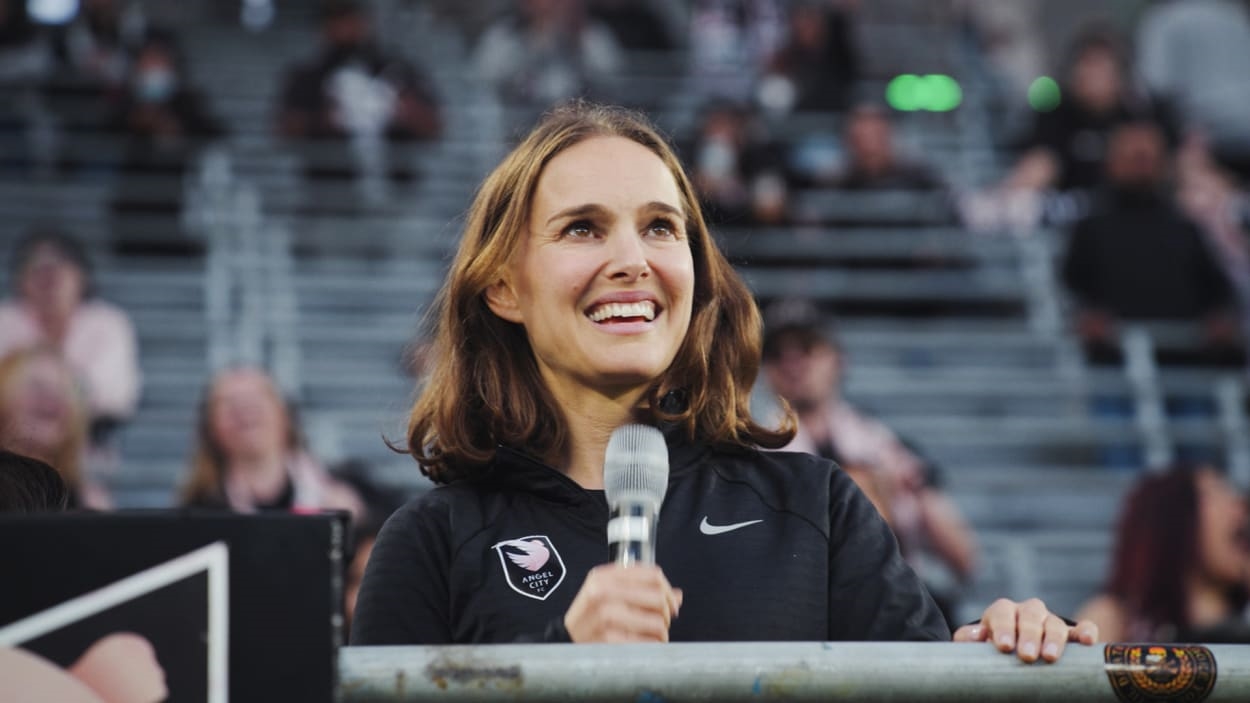‘We wanted to share our playbook’: Natalie Portman on her new ‘Angel City’ soccer documentary
When the players for Angel City FC, Los Angeles’s professional women’s soccer team, took the pitch for the first time last spring, expectations were high. Cofounded by actor Natalie Portman, venture capitalist Kara Nortman, and entrepreneur Julie Uhrman, the club counts among its high-profile investors Reddit cofounder Alexis Ohanian, along with A-list actors and athletes, including Eva Longoria, Billie Jean King, Abby Wambach, and Julie Foudy.
These founders and backers weren’t shy about their world-changing mission: to create a top-class soccer club that can change the business of women sports. “We were creating a different model,” says Portman, looking back.
Angel City’s cofounders wanted to cultivate a fandom that could set attendance records, secure sponsorships that valued the team at least as much as MLS men’s clubs, and create a culture that addressed the sexism and abuse that was coming to light at other National Women’s Soccer League clubs. And they wanted to give fans a team they could feel proud cheering for.
A year later, Angel City is offering viewers a behind-the-scenes look at the creation of the club, struggles and all, with HBO’s new documentary, Angel City. Directed by Arlene Nelson and executive produced by Portman through her MountainA production company, along with Elizabeth Chai Vasarhelyi and Jimmy Chin (of Free Solo fame), the three-part series tracks the team from its announcement through its first season. “We wanted to share our experiences, both the good and the bad,” says Portman, “and share our playbook for how it could be done.”

The series is part sports documentary, following the athletes as they experience highs (a gripping season opener) and lows (injury after injury) in their quest to make the NWSL playoffs in their first year. In contrast to the sometimes lackluster quality of NWSL broadcasts, the Angel City cinematography vividly showcases the team’s talent on the pitch—these women are, after all, among the best on the planet. As Portman says, this kind of content is essential to elevating the game: “The more all kids see women virtuoso athletes in the same light as they see male virtuoso athletes, the more everyone benefits.”
The documentary also lays out the Angel City playbook. “Women’s sports have not had the same investment, have not had the same broadcasts, have not had the same sponsorship dollars,” explains Portman. “So they’ve been at a disadvantage—and then that is used as evidence that it’s not possible to be successful. We wanted to show that with a different belief and ability to garner sponsorship dollars and supporters, it is possible to be successful.”

The team was—and is—successful in that regard. As the documentary shows, under Uhrman, who serves as Angel City president, the club fought to secure sponsorships from the likes of Doordash, Klarna, and shoe start-up Birdies worth $50 million that first year. Angel City also notched an average attendance at games of 19,100 people by engaging deeply with the local community. (It certainly helps to have A-list actors in the stands.)
All this helped justify Angel City’s $100 million valuation—and has helped the NWSL drive up valuations elsewhere. Investors recently bought into the league’s forthcoming Bay Area team for a record-setting $53 million expansion fee.
But Angel City also shows how the team’s cofounders and leadership wrestled with the harsh realities of women’s sports to bring their vision to life. There’s the quality of those NSWL broadcasts, for one, and their limited presence on primetime television. As defender Ali Riley pointedly notes while touring her family’s home: “This is where my parents watch my games—if they can figure out CBS and Paramount+.”
And there’s the matter of practice facilities. Angel City shared space with the LA Rams, but played second fiddle to the 2022 Super Bowl winner. At one point, the soccer team’s weight rooms were set up in tents outside. “We sold a vision that we will get to,” says Uhrman in the documentary, “but we are absolutely not there today.”
There’s also the issue of culture. One of the most uncomfortable moments of the documentary comes when the players and leadership grapple with how to respond to a teammate who seemingly doesn’t want to support Angel City’s Pride celebrations—an attitude that flies in the face of the club’s inclusive mission.
“There are things that, of course, go wrong and are unexpected,” says Portman. “You have to look at your real values when you’re trying to deal with those issues that come up.” It’s those difficult moments, in other words, that forge the team for the long haul.
(22)



